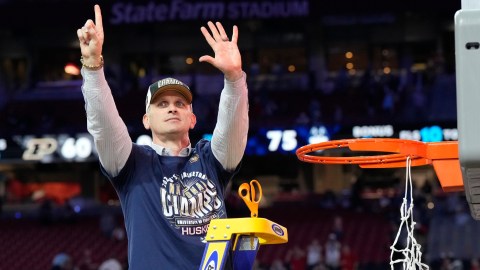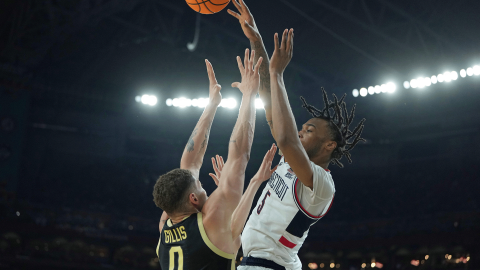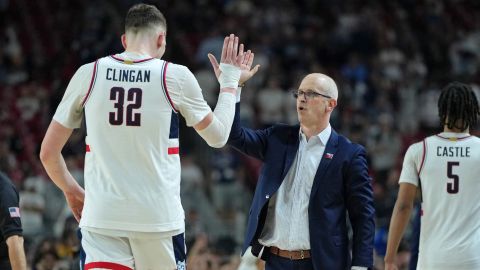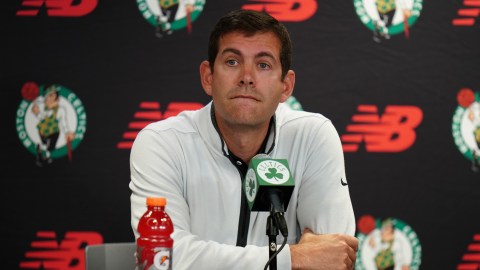 CBS and Turner Broadcasting locked down the rights to broadcast the NCAA tournaments from 2011-2014 for the enormous price of $10.8 billion in 2010. The deal lets fans watch games from morning till night, watch several matchups at once thanks to multiple stations airing the tournament and, most importantly, the agreement allows all those hard workers in offices a chance to watch the Madness from their cubicles via the Internet.
CBS and Turner Broadcasting locked down the rights to broadcast the NCAA tournaments from 2011-2014 for the enormous price of $10.8 billion in 2010. The deal lets fans watch games from morning till night, watch several matchups at once thanks to multiple stations airing the tournament and, most importantly, the agreement allows all those hard workers in offices a chance to watch the Madness from their cubicles via the Internet.
That hefty sum goes right into the pockets of everyone except the guys on the court who provide all of the entertainment. According to the current NCAA rules, aside from a scholarship, student-athletes can not be paid — but what if that wasn’t the case?
Dave Berri explored the possibility of a free market for college athletes in a Freakonomics blog, using the Indiana Hoosiers as the guinea pig. In a process comparable to what is used in the NBA, Berri determined Victor Oladipo, guard for the Hoosiers, is responsible for 7.37 wins for IU this season. By placing a $100,000 price tag on a college basketball win — a conservative estimate, according to Berri — and combining Oladipo’s contributions, Berri calculates the guard’s production worth (Marginal Revenue Product) at $737,000.
Not a bad income for a 20-year-old junior.
Berri went on to analyze each player on Indiana’s roster to gauge their own Marginal Revenue Product. With IU scholarships valued at less than $30,000 and the average Hoosier being worth around $150,000, Berri proposes a new idea the NCAA could adopt to lessen the disparity.
“Simply allow each team to compensate its players in whatever fashion necessary to get the athlete to come to campus,” writes Berri. “I would suspect that for most athletes, the current system would continue. In other words, most athletes (across most sports) would simply receive a scholarship to play sports and attend school.”
Coach K doesn’t exactly need to be signing checks to recruit players. But for star athletes who generate more money than their scholarship is worth, like Oladipa, a free-market approach could see schools shelling out the big bucks for his talents and the guard actually reaping the benefits.



